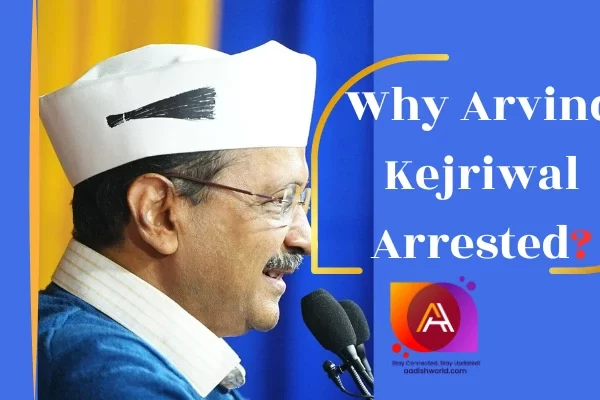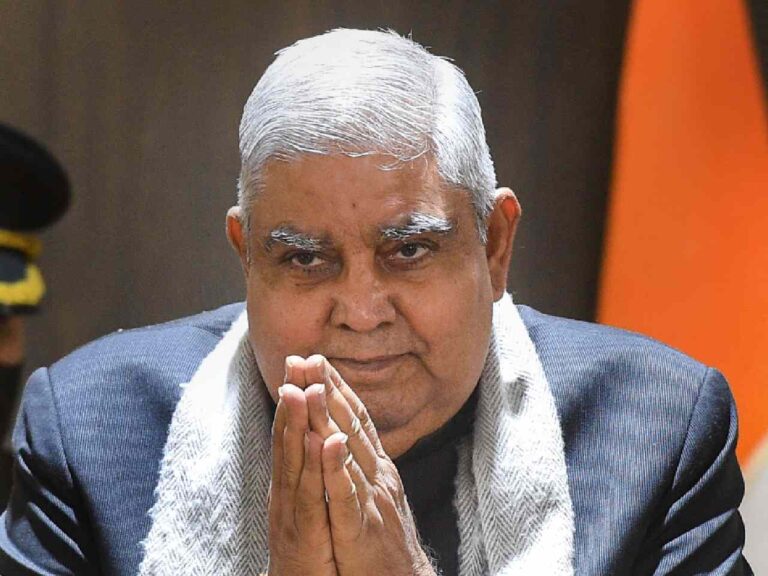Jagdeep Dhankhar: A Constitutional Voice in Indian Politics
Jagdeep Dhankhar is an illustrious Indian politician, lawyer, and the current Vice President of India. His keen intellect, legal acumen, and unwavering commitment to constitutional principles have placed him at the forefront of national discourse. From humble beginnings in rural Rajasthan to occupying one of the country’s highest constitutional offices, his journey is both inspiring and impactful.
In this article, we explore his early life, political career, contributions, and his pivotal role in India’s constitutional dialogue.
Early Life and Education of Jagdeep Dhankhar
To begin with, Jagdeep Dhankhar was born on 18th May 1951 in the village of Kithana, located in Rajasthan’s Jhunjhunu district. Coming from a poor Jat family, his upbringing was rooted in simplicity, discipline, and a deep love for learning.
Subsequently, he enrolled at Sainik School, Chittorgarh, which laid a strong foundation for his academic and leadership pursuits. Following this, he earned a degree in Physics from Maharaja’s College, Jaipur, and later pursued law at the University of Rajasthan.
Legal Career and Rise in Public Life
Before venturing into politics, Dhankhar established himself as a respected legal professional. He began practicing at the Rajasthan High Court and later at the Supreme Court of India, where he specialized in constitutional, civil, and service law.
Notably, in 1990, he was designated a Senior Advocate by the Supreme Court. His sharp legal mind and fearless political opinions earned him recognition in both legal and political spheres.
Political Career: From MP to Governor Entry into Politics
Dhankhar’s political journey began in the late 1980s when he was elected to the 9th Lok Sabha in 1989 from Jhunjhunu, representing the Janata Dal. Owing to his effective participation in parliamentary affairs, he quickly gained prominence at the national level.
Union Minister of State
Shortly thereafter, he served as the Minister of State for Parliamentary Affairs in Prime Minister Chandra Shekhar’s cabinet (1990–1991). During this tenure, he was praised for his insightful legislative interventions and consensus-building capabilities.
Return to Legal Practice and Renewed Political Involvement
After stepping back from active politics in the 2000s, Dhankhar resumed his legal career. However, he eventually rejoined political life through the Bharatiya Janata Party (BJP), assuming various organizational roles and continuing his engagement with public affairs.
Governor of West Bengal (2019–2022)
In 2019, Dhankhar was appointed as the 28th Governor of West Bengal. Arguably, his term was one of the most contentious in recent memory, frequently clashing with the state government under Mamata Banerjee.
While critics alleged that he overstepped his constitutional boundaries, his supporters viewed him as a steadfast defender of democratic values. Indeed, his assertiveness on matters of governance and law and order highlighted his deep commitment to constitutional propriety.
Vice President of India (2022–Present)
In July 2022, the NDA nominated Dhankhar as its Vice Presidential candidate. Following a decisive victory over opposition candidate Margaret Alva on August 6, 2022, he assumed office as India’s 14th Vice President.
Role and Responsibilities
By his position, Dhankhar also serves as the ex-officio Chairman of the Rajya Sabha (Upper House of Parliament). In this capacity, he ensures the smooth functioning of the house, upholds decorum, and guides legislative proceedings with clarity.
Thanks to his dual background in law and parliament, he brings a unique perspective to legislative discourse, often helping navigate complex debates with precision.
Why Jagdeep Dhankhar Matters in Indian Politics
- Voice of the Constitution: He consistently upholds constitutional morality and institutional integrity.
- Bridge Between Judiciary and Legislature: His legal expertise enables him to interpret and mediate between the branches of government.
- Assertive Leadership: Whether as Governor or Vice President, he is known for articulating bold positions on governance.
- Champion of Rural Empowerment: His agricultural roots drive his advocacy for rural development and land reforms.
Controversies and Criticisms
Despite his accomplishments, Dhankhar has not been free from controversy. His confrontations with the West Bengal government drew criticism for perceived overreach. Nonetheless, he has maintained that his actions were guided strictly by the Constitution and aimed at preserving democratic order.
Legacy and Future Outlook
Ultimately, Jagdeep Dhankhar’s rise from a modest village to the Vice Presidency epitomizes determination, resilience, and constitutional fidelity. Looking ahead, he remains a vital force in upholding the ideals of parliamentary democracy, legal integrity, and public accountability.
In conclusion, Dhankhar’s grounded demeanor, legal prowess, and fearless advocacy continue to shape his legacy as one of India’s most significant constitutional voices today.
Delve into the detailed explanation of Arvind Kejriwal’s arrest, examining the circumstances and motivations that led to this pivotal moment.

FAQs on Jagdeep Dhankhar
Jagdeep Dhankhar is an Indian politician, lawyer, and the 14th Vice President of India. He was also the Governor of West Bengal and is a world-renowned personality because of his political and legal activities.
He was born on May 18, 1951, in Rajasthan’s Kithana village.
He did his Physics from Maharaja’s College, Jaipur, and then law from the University of Rajasthan.
He began with Janata Dal and then shifted to the Bharatiya Janata Party (BJP).
He was elected Vice President on August 6, 2022, and took oath on August 11, 2022.
Being Governor between 2019 and 2022, he always complained about the state’s law and governance, claiming constitutional duties and being in conflict with the state government.
Dhankhar advocates for constitutional nationalism, robust institutional accountability, and development-oriented governance.
He facilitates hassle-free working of the Rajya Sabha, encourages good debates, and infuses constitutional discipline.





